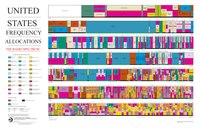
Photo from wikipedia
We know that European regulatory networks tend to broaden the gap between regulators and executives in the member states. But what is their impact on inter-agencies relationship at the national… Click to show full abstract
We know that European regulatory networks tend to broaden the gap between regulators and executives in the member states. But what is their impact on inter-agencies relationship at the national level? The scope of issues addressed by European regulatory networks may cover the competences of several independent regulatory agencies in the domestic arena. Who is competent to participate in the European regulatory network? What happens with the independent regulatory agency that cannot participate? This can trigger confusion, competence conflicts, but can also be an opportunity to develop coordination among the concerned independent regulatory agency. This situation is particularly delicate in federal states when the concerned independent regulatory agencies are located on different governmental levels. Against the background of interdependent regulatory competences across levels, this article examines the conditions for the rise of inter-independent regulatory agencies coordination regarding their participation in European regulatory networks. Theoretically, we engage with the literature on coordination between federal and subnational governmental actors for European Union affairs and extend its application to regulatory actors. Based on a longitudinal case study on energy regulation in Belgium, we bring three key findings. First, the federal regulator’s acceptance to coordinate is explained by the rising interdependencies between regulators across levels. Second, the regional regulator’s move from a contentious strategy to a more cooperative one is explained by learning. Third, bilateral coordination arrangements may pre-empt the emergence of multilateral ones.
Journal Title: Public Policy and Administration
Year Published: 2020
Link to full text (if available)
Share on Social Media: Sign Up to like & get
recommendations!